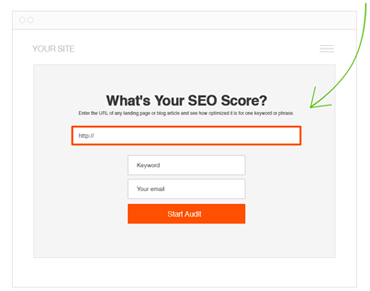The Art of Link Building
In the ever-evolving realm of digital marketing, one key strategy stands tall as the cornerstone of search engine optimization (SEO): link building. This practice involves acquiring hyperlinks from external websites to your own, ultimately enhancing your online visibility, website authority, and organic search rankings. However, link building has become complex and challenging as search engines become increasingly sophisticated. This article explores the various strategies, challenges, and ethical considerations surrounding link building.
Strategies for Effective Link Building
High-Quality Content Creation: Creating valuable, informative, and engaging content is fundamental to successful link-building. By producing quality content, websites are more likely to attract organic links from other authoritative sources. According to John Mueller, a Webmaster Trends Analyst at Google, “Content that is unique, compelling, and useful tends to attract natural links.”
Outreach and Relationship Building: Developing genuine relationships with industry influencers, bloggers, and webmasters are crucial for link-building success. Marketers can generate quality backlinks and establish themselves as thought leaders in their respective fields by contacting relevant websites, offering guest posts, or contributing expert opinions.
Link Reclamation: This strategy involves identifying and reclaiming broken or outdated links that point to your website. Marketers can regain lost link equity and maintain a strong backlink profile by contacting webmasters and requesting link updates. Tools like Moz, Ahrefs, and SEMrush can aid in identifying broken links.
Skyscraper Technique: Coined by Brian Dean, the Skyscraper Technique involves creating content that surpasses existing popular content on a given topic. By identifying highly-ranked content and producing superior, more comprehensive resources, marketers can attract links from those who previously linked to the inferior content.
Local Citations: For businesses targeting local markets, building links through local directories, maps, and review platforms can significantly boost local search visibility. Websites like Google My Business, Yelp, and Yellow Pages offer opportunities for local citation building.
Challenges in Link Building
Link Spam: The rise of link spamming techniques has made search engines increasingly stringent in their evaluation of links. Engaging in manipulative tactics, such as purchasing links or participating in link schemes, can result in severe penalties from search engines, damaging a website’s visibility and credibility.
Algorithmic Updates: Search engines continuously update their algorithms to deliver the most relevant and high-quality search results. Algorithmic changes like Google’s Penguin update focus on combating manipulative link-building practices and penalizing websites that violate their guidelines. Marketers must stay updated to ensure their link-building strategies remain practical and ethical.
Link Relevance and Authority: Acquiring backlinks from irrelevant or low-quality sources can harm a website’s reputation and ranking. Search engines highly value links from authoritative websites with relevant content, while links from spammy or unrelated sources are considered detrimental. Building relationships with reputable websites in the same industry is crucial for acquiring high-quality backlinks.
Ethical Considerations in Link Building
Link building, like any marketing practice, should adhere to ethical guidelines. The following considerations are vital for maintaining a positive online reputation and sustainable SEO:
Transparency and Disclosure: When engaging in guest posting or sponsored content, disclosing any partnerships or compensated relationships is essential to ensure transparency and adherence to regulations.
User Experience: Prioritizing user experience and offering valuable content should always be the primary objective. Link-building strategies should align with enhancing user experience rather than solely focusing on link acquisition. This means that links should be earned naturally through the merit of the content rather than through manipulative tactics.
Relevance and Context: Links should be relevant to the content they are placed in. Placing links in unrelated or irrelevant contexts can confuse users and may be seen as an attempt to manipulate search engine rankings.
Respect Intellectual Property: When using images, quotes, or any other copyrighted material, it is essential to obtain proper permission or give appropriate attribution to the source. Respecting intellectual property rights contributes to maintaining ethical practices in link building.
Community Engagement: Engaging with the online community by participating in discussions, offering insights, and providing valuable resources can naturally lead to link acquisition. Actively contributing to the industry and establishing meaningful relationships can result in organic backlinks from reputable sources.
Conclusion
Link building remains a critical aspect of SEO and digital marketing strategies. However, in an era where search engines prioritize quality and relevance, it is crucial to employ ethical and effective link-building techniques. By creating high-quality content, building genuine relationships, and adhering to ethical guidelines, marketers can navigate the complexities of link-building while maintaining a solid online presence and improving organic search rankings.
References:
Google Webmaster Central Blog. (n.d.). Retrieved from https://webmasters.googleblog.com/
Dean, B. (2013). The Skyscraper Technique. Backlinko. Retrieved from https://backlinko.com/skyscraper-technique
Sullivan, D. (2012). The Year Google & Bing Took Away From SEOs & Publishers. Search Engine Land. Retrieved from https://searchengineland.com/the-year-google-bing-took-away-from-seos-publishers-108047
Link Building Tactics to Avoid in 2022. Moz. (n.d.). Retrieved from https://moz.com/link-building-tactics
Cutts, M. (2014). The Decay and Fall of Guest Blogging for SEO. Matt Cutts: Gadgets, Google, and SEO. Retrieved from https://www.mattcutts.com/blog/guest-blogging/
 May 15, 2023
May 15, 2023


